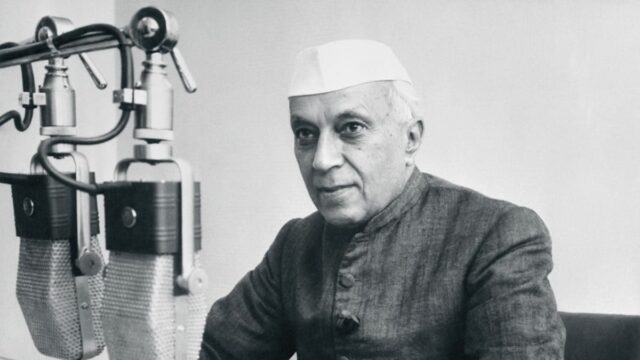The Untold Story of Hindu Refugees and the Citizenship Amendment Act: A BJP Leader’s Perspective
This article explores the claims made by BJP leader Dr. Anirban Ganguly in his new book, “From Partition to Progress: Persecuted Hindus and the Struggle for Citizenship,” about the plight of Hindu refugees from Bangladesh and the alleged apathy of the Indian Congress towards their cause. Through the book, Ganguly argues that India’s first Prime Minister Jawaharlal Nehru’s stance towards these refugees was one of indifference, even hostility, while contrasting it with the BJP’s and its predecessor, the Bharatiya Jana Sangh’s, commitment to their welfare.
The Congress’s Alleged Betrayal of Hindu Refugees: A Case Study in the 1950s
Ganguly contends that the Congress Party, despite its claims of championing the cause of all Indians, exhibited a stark double standard when it came to Hindu refugees from East Pakistan (now Bangladesh). He cites several instances to substantiate his claim, demonstrating the perceived failure of the Congress to deliver on promises of protection and support for these refugees.
The Case of Dr. BC Roy:
Ganguly highlights a particular instance where the then Chief Minister of West Bengal, Dr. BC Roy, appealed to Prime Minister Nehru to offer sanctuary to Hindu refugees fleeing persecution in East Pakistan. Nehru allegedly dismissed Roy’s pleas with the chilling response, “If we open the door, we will all sink,” insinuating a fear of overpopulation or societal burden. This anecdote, if true, reflects a deep-seated disregard for the humanitarian crisis unfolding on India’s doorstep and a preference for short-term political expediency over long-term human rights considerations.
The Ignored Pleas of the Nikhil Vanga Bastuhara Karam Parishad:
A delegation of Bengali Hindu refugees belonging to the Nikhil Vanga Bastuhara Karam Parishad (NVBKP), including Gandhians and Congress leaders from East Bengal, reached out to Nehru at the Jaipur session of the AICC in 1948. These were individuals who had actively fought for India’s independence alongside Gandhi. However, their pleas for aid and citizenship were summarily rejected by Nehru, who referred to them as “foreigners,” despite their clear contribution to the Indian struggle for freedom. This dismissive attitude further underscores the alleged disregard shown by the Congress toward these refugees.
Connecting the Past to the Present: The Citizenship Amendment Act and its Critics
Ganguly skillfully uses the contentious Citizenship Amendment Act (CAA) as a fulcrum to connect the past with the present, highlighting the Congress’s alleged history of neglecting Hindu refugees and its present opposition to the CAA.
Tracing the Congress’s Opposition to the CAA:
He draws a direct link between Nehru’s purported stance against the integration of Bengali Hindu refugees into India and Rahul Gandhi’s vocal opposition to the CAA. He argues that both share a common lineage in their unwillingness to acknowledge the plight of persecuted minorities from neighboring countries and their commitment to protecting India’s boundaries at the cost of human compassion. This connects Rahul Gandhi’s stance with Nehru’s past actions, portraying a familial pattern of prioritizing national security over the welfare of those seeking refuge.
The Legacy of Syama Prasad Mookerjee:
On the other hand, Ganguly presents the Bharatiya Jana Sangh, the BJP’s precursor, as a champion of the cause of Hindu refugees, tracing their commitment to their plight back to its founder, Syama Prasad Mookerjee. He emphasizes the party’s consistent stand on the issue of Hindu persecution in East Pakistan and its continued advocacy for granting citizenship to persecuted minorities, which culminated in the passage of the CAA.
Examining the Congress’s Internal Discord:
Ganguly also highlights the alleged internal conflict within the Congress itself, suggesting that even prominent figures like Dr. Manmohan Singh had, in the past, acknowledged the need for granting citizenship to refugees. He quotes Dr. Singh’s plea to the then Home Minister, LK Advani, urging action to address the refugee situation, thereby highlighting the dissonance between the Congress’s past position on refugee rights and its present stance.
Drawing Parallels and Unraveling the Narrative:
This book uses a narrative strategy that leverages the past to create a case for the present. By meticulously showcasing the Congress’s alleged neglect towards Hindu refugees in the past and aligning it with its current opposition to the CAA, Ganguly attempts to portray the BJP as a champion of those who were overlooked for decades. This strategic narrative helps further solidify the BJP’s stance on the CAA as a solution to historical wrongs and a promise fulfilled, effectively weaving a thread from the Partition era to the present-day political climate.
Take Away Points:
- The book presents a strong critique of the Congress party’s actions in the past, alleging it actively overlooked the needs of Hindu refugees seeking shelter in India.
- By juxtaposing the Congress’s historical stance on refugee rights with the BJP’s, Ganguly positions the BJP as the party that understands the plight of minorities and acts decisively to alleviate their suffering.
- This work uses the CAA as a bridge to connect past and present, highlighting the continuity of the BJP’s stance on refugee rights while demonstrating a shift in the Congress’s position on this crucial issue.
- By raising historical grievances and highlighting the alleged inaction of the Congress, this book seeks to galvanize public support for the BJP’s political agenda on the CAA, ultimately bolstering its claim of being a champion of those who have historically faced neglect.
Disclaimer : इस न्यूज़ पोर्टल को बेहतर बनाने में सहायता करें और किसी खबर या अंश मे कोई गलती हो या सूचना / तथ्य में कोई कमी हो अथवा कोई कॉपीराइट आपत्ति हो तो वह jansandeshonline@gmail.com पर सूचित करें। साथ ही साथ पूरी जानकारी तथ्य के साथ दें। जिससे आलेख को सही किया जा सके या हटाया जा सके ।














